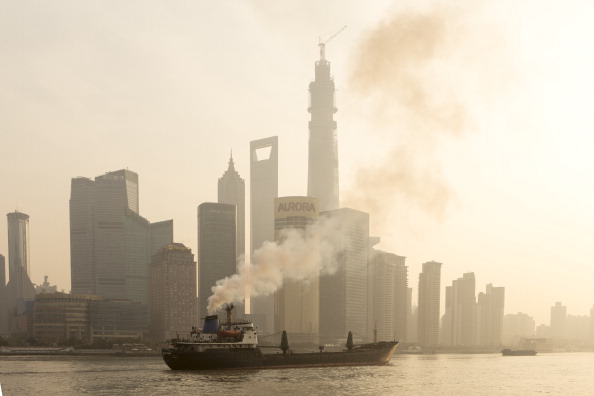China’s reckless pursuit of zero-Covid must finally teach us resilience in supply chains

There is a distant storm coming for all of us here in Britain. Shanghai, the world’s busiest port, has 500 container ships at anchor outside in the East China Sea because the city is a month into the world’s strictest lockdown.
This isn’t a story about China. It’s about global trade and the importance of the few key points keeping it flowing. Shanghai is the busiest. At least, it waas until it was shut down in a delusional bid to try and wipe out Covid-19 completely.
Those blockages are already costing us. Delays are seeing prices rise and making life harder for everyone. Prices accelerating like a skier out of control will leave us all going downhill. Manufacturing firms have watched their costs rise at the fastest rate since 1975, according to the CBI. The producer price index has been pushed up to a colassal 19.2 per cent, according to the Office of National Statistics.
But what happens next could be even more serious.
There’s a tsunami of goods heading to our ports which we’re already struggling to get to shops and homes. More ships, more containers, means more trucks and more demand here. In some major European ports, such as Hamburg or Rotterdam, there are already delays up to almost two weeks. That will see prices of other services spike as the surge in supplies competes with goods already on our roads.
No one has planned for two months of ships arriving at once. Maybe we’re going to have to start because this isn’t over.
In the first three months of this year, the UK built 100,000 fewer cars than the year before as manufacturers scrambled to find small items missing from stopped production lines. We had hoped the end of Covid-19 would end the delays, but Beijing’s elimination strategy has continued to cause snarl ups. Shanghai is only the latest example of the Communist Party’s failed policy torturing their own citizens and pushing costs onto everyone.
Along with rising energy bills, we’re clearly now seeing the highest inflation in a decade. And it will get worse. That’s why we need to look elsewhere.
Resilience comes at a cost. But so does vulnerability – we’re learning this the hard way. Resilience means spending on stockpiles and tying up capital in goods rather than our habit of watching it flow fast to generate quick profit. If we’re going to avoid the major backlogs that come from small disruptions, we’re going to have to go from just-in-time to just-in-case.
China produces 40 per cent of the world’s active pharmaceutical ingredients. We can’t see these delays leaving millions of Brits with high blood pressure in danger.
Last year, the UK realised its supply of the essential treatment is reliant on a single Chinese company. That is unacceptable.
We need to think again before the storm lands.
In Shanghai, 25 million people are banned from leaving their apartments. In some areas, officials have constructed two-metre fences across building entrances locking in residents.
But it’s not just China that suffers.
Global supply chains mean we have incredible choice and variety in stores on British shores. But they also make us unprotected if we don’t look at where these goods are coming from and what would happen if supply dried up.
We need to look at the cargo ships at anchor, or the people detained in their homes. This is about freeing us all from dependence on unreliable partners when we have learned our lesson already.
Over the past five years, we’ve had three warnings to build up resilience at home. Brexit, Covid and the war in Ukraine have all been siren-clear. Now is the time to act.
The next alert—it could be anything from a climate catastrophe to a political failure—may not be as forgiving. And we won’t be able to say we didn’t know. This storm has been brewing for years.